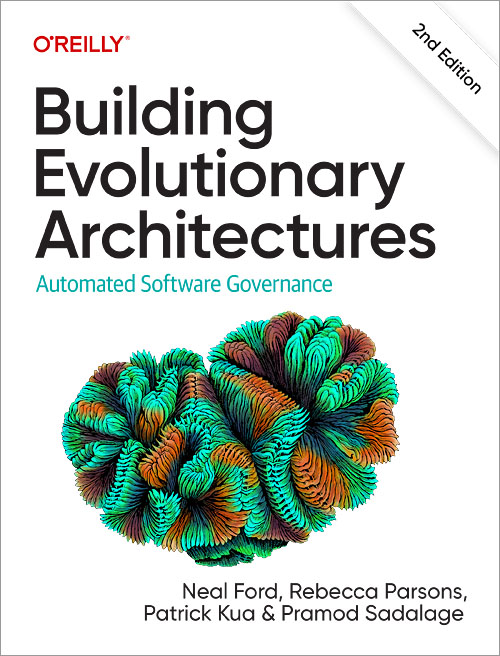Book
Authors: Rebecca Parsons , Neal Ford, Patrick Kua and Pramod Sadalage

Put the principles of automated governance into action
The new edition of Building Evolutionary Architectures expands on the principles laid out in the first edition to demonstrate how software architects and engineering teams can successfully realize an evolutionary architecture.
Using a wide selection of concrete examples that have emerged through conversations and responses to the first edition of the book, it details how fitness functions can be used to drive, manage, and automate change across all of the architectural concerns that every complex modern organization must contend with — including data, applications, and platforms.
However you might be involved in architectural decision making, the second edition of Building Evolutionary Architectures provides comprehensive and applied guidance that will help you tame complexity and adopt a technical posture that views change as an opportunity to be leveraged, not a risk to be managed.
What's new in the second edition?
This edition of the book dives deeper into fitness functions and demonstrates how you can use them to automate architectural governance
The authors explore how different architecture styles and patterns facilitate evolution and outline the impact of granularity and communication.
This edition shows how fitness functions and structure combine to yield systems that enable and support change.
Take a look inside
Whether you're new to the concept of evolutionary architecture or want to simply take a look at the new edition, you can get a sneek peak with this free first chapter.
Authors

Thoughtworks CTO

Director, Software Architect and Meme Wrangler at Thoughtworks

Director at Thoughtworks

Thoughtworks Alumnus




















